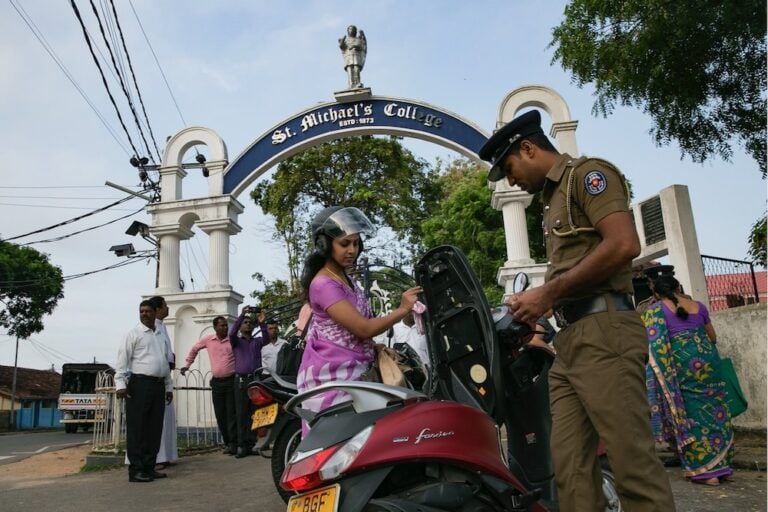(FMM/IFEX) – The following is a FMM press release: The Post-Tsunami Role of the Media The Free Media Movement (FMM) expresses its appreciation for the media’s role in collecting and distributing immediate humanitarian relief for tsunami victims in the days following the tragedy of 26th December 2004. Media institutions got into the act faster than […]
(FMM/IFEX) – The following is a FMM press release:
The Post-Tsunami Role of the Media
The Free Media Movement (FMM) expresses its appreciation for the media’s role in collecting and distributing immediate humanitarian relief for tsunami victims in the days following the tragedy of 26th December 2004. Media institutions got into the act faster than any others with vigour and commitment in galvanising the country to rise above the tragedy.
At the same time, the media played a vital role in explaining the tsunami phenomenon to the population, creating mass awareness of this natural disaster.
The capacity demonstrated by television channels to mobilise people to donate food, clothes and medicine within the first 48 hours was an example of the beneficial influence of audio visual media in our society. As we enter the second week of the tsunami catastrophe, however, the imperatives of rehabilitation and reconstruction are becoming the priority, above and beyond the provision of immediate relief.
This catastrophe, involving more than 30,000 people killed and nearly one million displaced, calls for mammoth-scale rehabilitation and reconstruction planning and action. More and more international aid is pouring in. At the same time, however, there are disturbing reports of corruption, discrimination and immediate relief not reaching the needy.
In this context, the role of the media as a watchdog over reconstruction and relief efforts assumes broader significance over that of its role as a provider and catalyst of immediate relief. In a democratic society, the watchdog role of the media entails ensuring that rehabilitation and reconstruction activities are transparent and devoid of corruption and discrimination. Given the high level of corruption in our society, as recently reported by Transparency International, FMM urges all Sri Lankan media institutions and journalists to bear in mind the media’s foremost responsibility as an instrument of democratic accountability. FMM is in the process of networking with journalists’ organisations at the national as well as provincial levels in this regard.
Meanwhile, FMM stresses the need for a proper investigation to ascertain why no prior warning of the tsunami was given by the relevant authorities. The media should play a key role in generating public discussion on this issue.
Whilst reiterating the appeal to all journalists and media institutions to bear in mind the media’s watchdog role with regard to the reconstruction and relief operations about to commence, FMM calls upon all central, provincial and local government authorities and their agencies to co-operate with the media in ensuring the reconstruction effort is conducted in a corruption-free, open and accountable environment.
FMM also calls upon all political parties in general, and Committees and Task Forces currently operating under the Presidential Secretariat in particular, to consider the immediate enactment of the draft Freedom of Information Bill of February 2004 – which has the endorsement of both the United People’s Front Alliance (UPFA) and the United National Party (UNP) – as a part of the structures that are to be enacted to deal with this crisis. A freedom of information regime will be invaluable in facilitating the role of the media as the primary instrument of accountability in a democratic society.
Sunanda Deshapriya
Spokesperson, FMM


